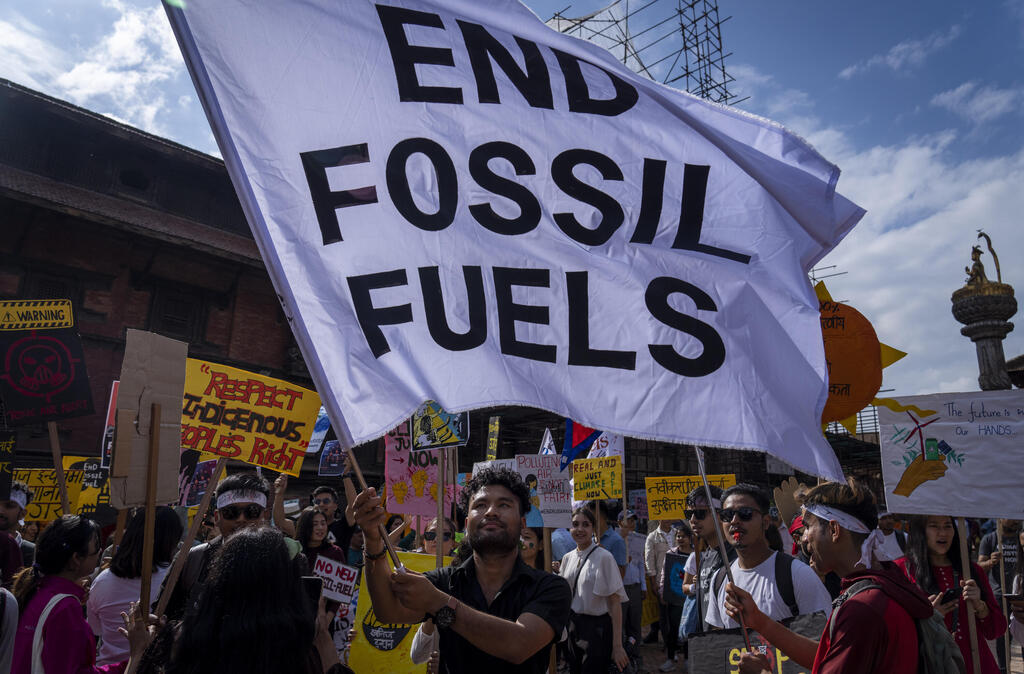Getting your Trinity Audio player ready...
Even amid existential conflicts, Israel holds the key to bolstering its economy and addressing future environmental and social crises. This can be achieved through the attainment of the Sustainable Development Goals (SDGs).
In 2015, the United Nations established 17 goals that represent the broadest consensus on the challenges humanity must overcome by 2030 to avert major environmental, social, and economic crises, and to ensure a decent standard of living for future generations. A comprehensive and holistic approach that facilitates Israel's continued economic development while preserving natural and societal resources is crucial, particularly now as we face the need to rebuild and synchronize efforts across all government ministries.
Where will the funds come from?
Current estimates suggest that the global budget required for sustainable development exceeds $10 trillion annually. Governments cannot allocate such vast sums from their regular budgets, and the private sector, committed to profit margins, often finds it challenging to align with the impact-driven objectives of the SDGs. So, where will the funds come from?
For Israel, the solution may lie in an economic model reminiscent of the country’s first 40 years. During this period, Israel generated a cash flow for development beyond its national budget, even amidst existential wars and a rapidly growing population. This was accomplished by issuing government bonds that promised a return of approximately 5%, linked to pension, provident, and insurance funds.
Investing pension funds in the country's rehabilitation and needs would yield returns and provide environmental, social, and economic resilience for all Israeli citizens and the next generation.
Investing in our future
Today, amidst war expenditures, a slowdown in foreign financing, a growing population, and the need for sustainable infrastructure development, re-adopting this model is necessary. It can facilitate the reconstruction of areas such as the Gaza periphery and the north, strengthening the entire Israeli economy. Currently, the pension funds of Israeli workers can be used as financing sources, directing a substantial portion of long-term pensions towards sustainable development investments.
The primary reason pensions are not currently invested in the state and its development is the low real return (profit after deducting inflation), which fails to attract private sector investments. The public sector, however, aims to generate not only profit but also environmental and social impact, known as the impact line.
Since sustainable development investments may prioritize impact over profit, it is the government's responsibility to distinguish between them and create profitability from sustainable development. Through regulation, the government should enforce adherence to sustainable standards, levy taxes on polluting companies equivalent to the societal costs of their activities, and thus subsidize pension fund investments.
This is already happening worldwide, why not here?
Such tax regulations are already being advanced in Europe. According to legislation passed in 2023 by the European Union, industries are now required to report greenhouse gas emissions, and starting in 2026, after a transition period, companies will also be required to pay a carbon tax based on these reports. Consequently, Israeli companies exporting to Europe will face the carbon tax, leading to revenue losses (at the expense of our natural resources) and having to pay the tax to Europe instead of to the Israeli treasury.
Local taxation of polluting industries and measuring the impact line in national accounting will enable the investment of pension funds in Israel and the subsidy of sustainable development. Pension funds invested in the country's rehabilitation and needs will yield returns and provide environmental, social, and economic resilience for all Israeli citizens and future generations. Adopting this model will not only ensure the restoration of war damage but also fortify Israel against future challenges.
Prof. Yehuda Kahana is the founder of SDGs Israel and Yael Ifargan Gini is the CEO of SDGs Israel.
- This article was prepared by ZAVIT, the news agency of the Israel Society of Ecology and Environmental Sciences.




